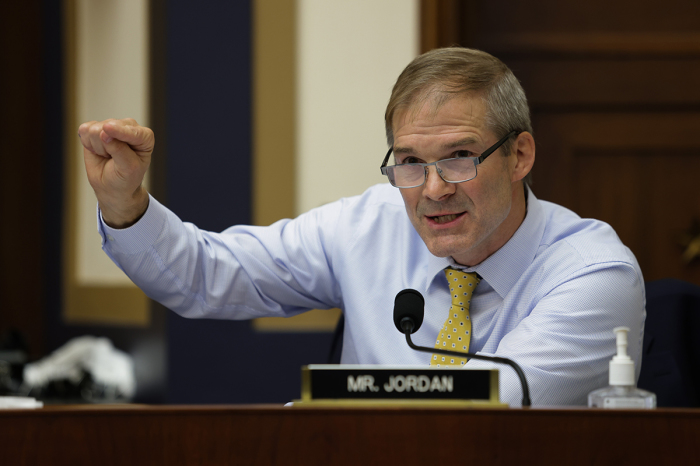Feds surveilled Americans' private transactions, flagging terms like 'Trump' or 'MAGA’

The federal government ordered banks to conduct “broad financial surveillance” of American citizens' private transactions related to politics or religion to identify people it deems as potential threats, according to a recent report from a congressional subcommittee.
Alliance Defending Freedom, a legal nonprofit specializing in religious freedom cases, was among the organizations listed as “hate groups” by the U.S. Treasury Department, which advised big banks to monitor customers' donations to the nonprofit.
ADF provided The Christian Post with a copy of the interim staff report by the U.S. House Select Subcommittee on the Weaponization of the Federal Government released by members of the House Judiciary Committee who are tasked with "upholding fundamental American civil liberties," the report states. "As a part of this mission, the Committee and Select Subcommittee have uncovered startling evidence that the federal government was engaged in broad financial surveillance, prying into the private transactions of American consumers."
According to the report, the "financial surveillance was not predicated on any specific evidence of particularized criminal conduct and, even worse, it keyed on terms and specific transactions that concerned core political and religious expression protected by the Constitution."
On Thursday, ADF Senior Counsel and Senior Vice President of Corporate Engagement Jeremy Tedesco testified before the Weaponization Subcommittee, which is chaired by Rep. Jim Jordan, R-Ohio.
The subcommittee shared documents earlier this year that showed the federal government flagged terms related to former President Donald Trump for financial institutions. In addition, the federal government is believed to have flagged transactions that involved the purchase of religious texts, such as the Bible.
In his testimony, Tedesco urged Congress to pass the Fair Access to Banking Act, which would place restrictions on banks, credit unions and payment card networks that refuse to do business with law-abiding citizens. He also advised lawmakers to call for “greater transparency” from financial regulators and institutions.
“No American should be denied access to basic financial services such as a bank account, debit or credit card, or payment processing because of their religious or political views,” Tedesco stated.
“Unfortunately, many Americans have good reason to fear that these essential financial services could be abruptly canceled based on the exercise of their First Amendment freedoms.”
Canadian clinical psychologist Jordan Peterson also testified Thursday and warned about the dangers of government surveillance. Peterson cited the Chinese Communist Party and the Canadian government's response to COVID-19 lockdown protests as examples of government surveillance going too far.
“With increasing ability to monitor not only the actual attention patterns and behaviors of its citizens but to predict those that are most likely, the persecution of such potential crime becomes ever more likely,” Peterson stated. "If you have nothing to hide, you will have nothing to fear,’ will be the slogan commandeered by those most likely to turn to surveillance to protect and to control."
In a press release last Tuesday, the ADF highlighted amicus briefs it filed in Murthy v. Missouri, National Rifle Association v. Vullo, and Volokh v. James. According to the ADF, the cases “involve the government inducing or encouraging powerful businesses to censor and penalize everyday Americans for their speech.”
“Big Banks and Big Tech pose threats to freedom like Big Brother does,” Tedesco stated in the press release ahead of the hearing. “What’s worse is the mounting evidence that Big Brother is enlisting Big Business in its censorship schemes.”
"The federal government is attempting an end-run around the Constitution by outsourcing censorship to some of the most powerful corporations the world has ever known. But where the First Amendment is concerned, the government can’t do indirectly what it is forbidden from doing directly.”
Samantha Kamman is a reporter for The Christian Post. She can be reached at: [email protected]. Follow her on Twitter: @Samantha_Kamman




























